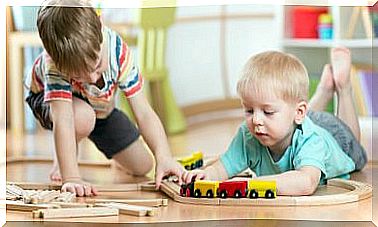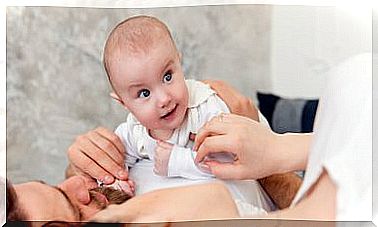My Son Is In The Stage Where He Does Not Want To Bathe
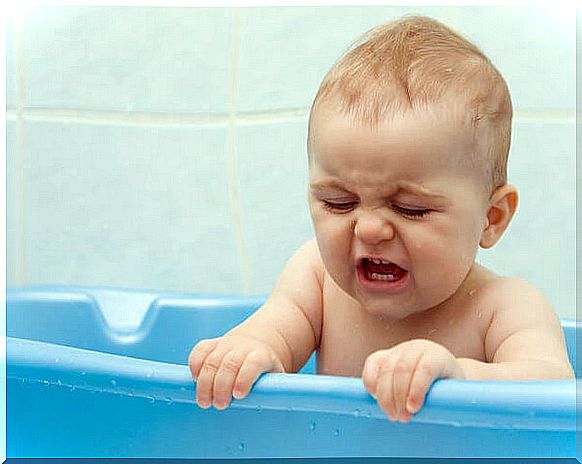
At first it seems that all children are in love with water. Babies love to splash between water and foam, some even cry when they are taken out of the tub because they want to stay there longer, but that kind of romance with water does not last forever, because you should know that a stage may come in which the situation is reversed and the child does not want to go to the bathroom and will cry again, but because he does not want to bathe.
Bath time comes, you call your son and he does not respond favorably, then the ordeal begins. And when the scene becomes everyday, the questions arise: What is wrong with him? Why have you changed your attitude, if until recently you enjoyed playing in the bathtub? In general, this rejection of the little one to the water can be due to several reasons.
Perhaps without knowing it, your child has had a bad experience in the bathtub that little by little caused him to create rejection or fear. Perhaps you have ever slipped or hit, or you may have had foam in your eye for a long time, or the water was too cold or too hot … Any of these circumstances can contribute to the idea that the bathroom is unpleasant.
Another very common reason is that he is afraid of going down the drain and the safest thing is that if he comments on it, all the adults will laugh at him, which they should not do, since it is a common fear among children of one and two year old. He tries to understand that he is a child and his imagination has no limits, they believe everything possible. Also if he saw or heard it somewhere, he will believe it possible.
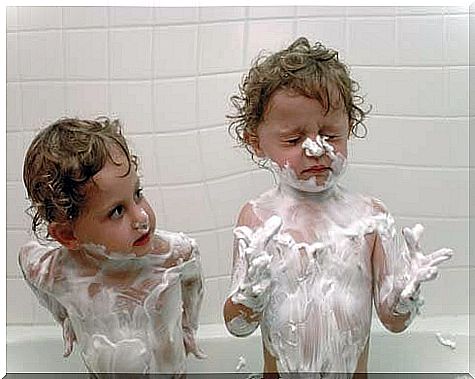
Reaffirming your personality sometimes implies saying: I don’t want to bathe
There is also a period in which the child wants to affirm his personality and enters the “no” stage, in which he tries to make himself respected by opposing, as a rule, everything that the elders tell him, he does not want them to put something on him. clothes type, does not want to take naps and does not want to go to bathe.
Do not force him to get into the bath if he does not want to, this will only make the picture worse at bath time. Instead, try to do it when you feel relaxed and receptive. If when he sees you with the intention of bathing him he starts to get nervous, do it dry, out of the bath, with a washcloth moistened in soap and water and another only in water. When you see him more confident, suggest putting his legs in a large water slide. Most likely, you will love the idea.
Once this activity is everyday and enjoyable, place the slide in the bathroom. And a few days later, suggest that your child try to get off the slide and get into the bathtub or shower. To avoid inconvenience, place non-slip mats on the floor of the bathtub and make sure the water is warm and so that he is not afraid, bring his toys.
If you have to wash your hair, be very sure of what you are going to do, you already know this very well. But if, even so, the child does not feel safe, put a bath visor on him that allows you to wash his head without risk of wetting his face or smear Vaseline on his eyebrows, this will make the water run out and it will not fall on the eyes.
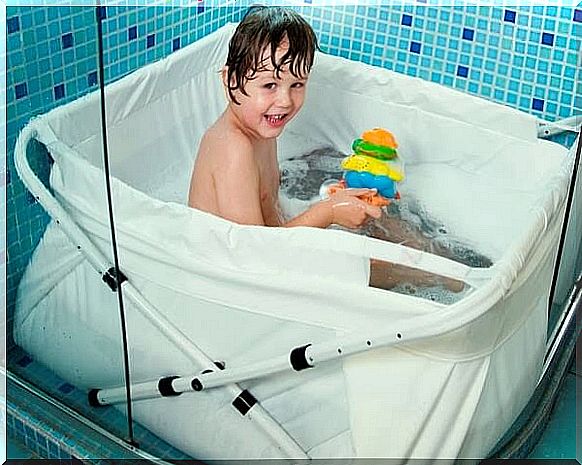
Do not force it, that will bring you the opposite effect
Also at this age, which goes from 2 years onwards, the child may have other reasons for not wanting to bathe. Remember that apart from wanting to affirm your personality, at this stage the first signs of modesty and resistance to the bathroom begin. That may be nothing more than a demand for autonomy, wanting to show that he is no longer a baby and can bathe alone.
Preventing them is not recommended, it will restrict their development and the desire to start being independent. Of course, at 2 years old he will not be able to clean himself completely, but if your child is 4 or 5 years old he may already be able to do it himself.
Help him only if he needs it and do not lose sight of him, stay alert and especially if he is in the bathtub, yes, try to promote his independence if he shows interest in doing it alone, in the end it is a task that sooner or later you will stop doing and that It will be up to him alone.
